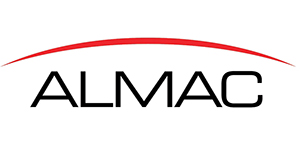Almac Adapt facilitates the late-stage customisation of clinical supplies by postponing packaging and labelling until the site or patient need arises. This solution ensures that finished patient kits are only packaged, labelled and shipped when needed, resulting in reduced timelines, wastage and product shortages to ensure budgetary and protocol efficiencies.
Natalie Balanovsky explains: “This Just-in-Time Manufacturing (JTM) solution was designed to meet the challenges of today’s trials and those of tomorrow, including gene and cell therapies, oncology trials, immunotherapy, rare and orphan diseases, adaptive trials and expanded access/compassionate use for a named patient. I’ve been working on this project for several years now and it’s something we’re very proud of here at Almac.”
“We went live with Almac Adapt last June,” she continues, adding: “The product itself was developed in response to the challenges of many of our sponsors about their supplies, particularly in the realm of cell/gene therapies, biologics, etc., and the requirement to try to do more with less."
"They’re working with limited stock and expensive products, for example, and trying to figure out how to bring it into the supply chain without making static supplies and running the risk of wasting their product. This was the driver that prompted us to implement a more adaptive strategy that was less static than traditional batch manufacturing. So, JTM is just that: it’s a full, late-stage production approach to these types of supplies.”
Joining the conversation, Mark comments: “We have a long history of working with clinical supplies at Almac, going back to 1988 in Northern Ireland. Up until Almac Adapt, it had been a traditional batch-based process within the business; for example, the bulk of what we do is make patient kits ahead of time, based on what our sponsors think they might need — and their hopes for enrolment in their studies — all over the world."

Natalie Balanovsky
"But, like many things, it’s not an exact science! Sure, there’s some statistics and science behind those numbers, but no one knows for sure what the final requirement will be. So, for the longest time, we’ve made lots of kits, which we’re happy to help our customers do, but they’ll sometimes end up sitting on a shelf until a patient gets involved in a study. Then, the sponsor will ask us to pull it off the shelf, pack it up and ship it off to the clinical site to be given to the patient.”“Recently,” Mark adds, “more biologics and gene/cell therapies have come into play … and these are expensive products. To make a lot of them, not knowing whether you’re going to need them all, is a costly exercise, particularly if they end up being discarded."
"Also, we frequently have to rework them along the way because the sponsor is altering the expiry date; they don’t last forever. So, you do stability studies and you try to extend the shelf-life for your product; but, what we saw, and what we saw our customers struggle through, is a lot of waste with those products."
"With JTM, you’re only making what you need … because you don’t actually make anything until you get that patient order. This has really helped our customers be more flexible with their supplies and, at the same time, take a smarter approach to manufacturing those goods.”
As a point of clarification and returning to Natalie’s comment about batch-based production, I ask whether JTM is just another name for continuous manufacturing. “No it’s not,” she confirms. “Continuous manufacturing is almost like a continuous batch process; you start … and then you really don’t stop, you just keep making product."
"Certainly, there are cost savings and efficiencies to be gained because you’re not stopping and starting unit operations and/or swapping machinery around, etc. Plus, you’re doing tests on a continual basis to make sure that you’re meeting required specifications.”
“With JTM,” she expounds, “there is a start and a stop. However, it’s a much briefer period of ‘downtime’ because you’re only making a very small percentage of the overall number of kits that you might need. What you’re doing is spacing that out during the course of a study and not starting the manufacturing process until there is an actual demand for it — when you know a patient has been named and is going to need those supplies."
"So, the supplies we make are for a genuine, real-live patient as opposed to a theoretical or random one that a sponsor might propose up with … sometimes years ahead of when that patient actually comes along.”

Mark Rohlfing
Key Benefits
Natalie tells me that one of the key advantages with JTM, because you’re preparing these master documentations for future operations, is that if you do encounter an expiration update, “we have the ability to update that label and add countries very easily because we haven’t actually made anything and everything is sitting in the virtual background.”
“We’re making supplies for a specific patient, so the need to collate or rework a booklet goes away; we’re making single-panel, country specific labels, for example; so, from a site-usage perspective, there are also a lot of advantages. Those supplies are very explicit and in the local language, so there’s a lot of benefits, not only for the sponsor but also for the trial manager and, of course, the patient."
"Even if a study moves or shifts or if it doesn’t enrol as quickly as hoped, we have the flexibility and to adapt to those changes and deliver what’s needed where and when.”
“And, should a sponsor want to redivert those supplies to, say, a secondary study, this is also possible because they haven’t been manufactured yet. We’re seeing this more often with companies setting up multiple studies at the same time,” she adds.
Delving into the late-stage customisation aspect of the service Mark explains that Almac’s JTM process is applied to primary packed materials. “This would be your naked vials,” he says, “unlabelled bottles or wallets, materials that have already been placed in their primary component. What we do is put those study specific products together and make them ready to go out to the named patient for the appropriate study.”
Pandemic ready
Considering that JTM is not essentially a new concept, particularly in non-pharma environments, I ask whether COVID-19 or advanced therapies have affected its implementation. Mark notes that particularly with biologics, because you’re dealing with limited quantities of expensive products that have a relatively short shelf-life, “that was an initial driver for us to develop the idea of JTM.”
“It was almost 7 years ago when we first looked at the concept … and a lot has changed since then. A great deal has happened in the last 7 months! Particularly with gene and cell therapies, you simply cannot manufacture these supplies ahead of time. You have to wait until a patient is on board because the biometric screening is critical to get the dosage right. You just don’t know how much you need to provide until the patient is engaged, so JTM is a must-have for these kinds of trials.”
“On the subject of COVID-19, we’ve seen a number of customers and sponsors wanting to divert supplies that were originally intended for CNS or oncology studies and try these drug products on coronavirus patients. In some instances, it’s been a vaccine; but, with others, it may be something that provides a therapeutic benefit for patients who’ve already acquired the virus.”
We have a number of studies under way right now in which our customers are rediverting supplies to help COVID-19 patients
“Clearly,” adds Natalie, “time is of the essence. With JTM, because you’re not trying to schedule a very large job, it gives us the opportunity to prepare everything. Often, sponsors don’t actually know which countries are even going to allow them access, so we’re able to address their needs and requirements as those countries come on board.”
“Because of the global nature of these studies, it can be difficult to instigate something quickly; you’re trying to work in multiple geographies, compile a booklet, etc. With JTM, all you need is a master set of documents. Then, you simply provide label text and say, okay, here’s the country, here’s the content, let’s get this prepared and, once that demand is there, once that patient is named, that order comes in and we can address that patient’s need very quickly.”
“It’s been a fascinating journey and maybe not how we thought JTM was going to be used; but, I’m really proud of the fact that we’ve been able to respond and use our solution. For instance, we’re now seeing or talking to sponsors who have rediverted their supplies into COVID-19 applications and are now concerned about future studies that they were going to use their supplies for."
"So, now, they’re in a position to say: ‘Okay, I’m going to need to use JTM in the third quarter because I’ve taken X amount out of my supply chain. I’m now limited regarding how much I can put back into my other study.’”
“You can clearly see how JTM will help to manage those supplies and their supply chain … and make sure they don’t run out of patient kits. It’s enabling sponsors and manufacturers to provide critical care for patients, whether it’s for a COVID-19 or another therapeutic area, now or in the several months’ time, which will benefit people’s lives,” Natalie concludes.

